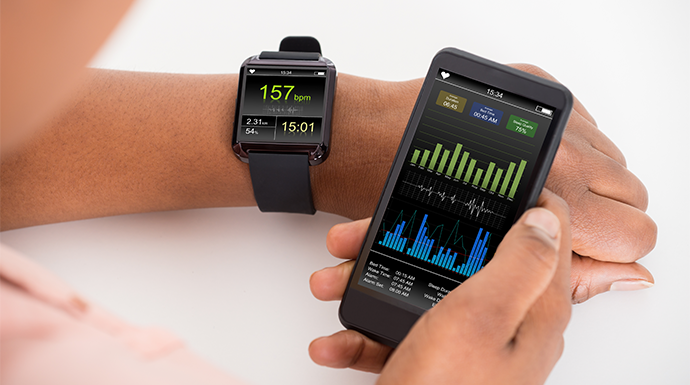mHealth Wearables Detect Pandemic-Related Stress in Healthcare Workers
Researchers using mHealth wearables to measure healthcare workers’ physiological responses found that a lack of resilience and emotional support increases stress.

Source: Getty Images
- Mount Sinai researchers used wearable devices to monitor physiological effects in healthcare workers during the COVID-19 pandemic and found that high resilience and emotional support are linked to a reduced risk of stress.
The study focused on 361 healthcare workers across seven hospitals in the New York City health system and leveraged a customized mHealth application along with the wearables.
Participants used the app to complete weekly surveys that gauged perceived stress, emotional support, optimism, quality of life, and resilience, which was defined as “the ability to overcome difficulty and a reduced vulnerability to environmental stressors.” The healthcare workers also wore an Apple Watch that measured their heart rate variability, a physiological marker of stress.
Researchers found that participants who reported high levels of resilience, optimism, and emotional support were less likely to experience perceived and longitudinal stress.
The healthcare workers also had different autonomic nervous system stress patterns compared to those who had low resilience or lacked emotional support. Their outside influences impacted not only their perceived stress but also their body’s physiological response to stress, the study noted.
“Our study highlights the importance of emotional support and resilience in moderating the effects of stress on healthcare workers during the ongoing pandemic,” Robert Hirten, MD, an assistant professor of medicine at Mount Sinai’s Icahn School of Medicine and the study’s corresponding author, said in a press release.
“Assessing the resilience and emotional support of healthcare workers may be able to help identify those at risk from ongoing stressors and may help guide healthcare institutions in allocating mental health resources for these at-risk employees,” he added.
In addition to levels of resilience and emotional support, the number of COVID-19 cases in the community also had an impact on longitudinal stress. Healthcare workers were more likely to experience perceived and physiological stress if they saw an abundance of COVID-19 cases.
“The experience of this pandemic has been especially stressful for healthcare workers, and as a community we need to be able to support them, especially as the virus persists,” Zahi Fayad, PhD, co-founder of the Mount Sinai Clinical Intelligence Center and the study’s co-author, said in the press release.
“Our study is one of the first to document not only the toll the pandemic has taken on our healthcare workers, but also the importance of resilience and social support as specific paths toward efficiently and effectively directing support.”
The study results highlight the importance of social and emotional support for healthcare workers, especially during a pandemic. Lack of support may translate into enhanced emotional and physiological stress in workers.
The study also revealed how mHealth wearables can assist in detecting stress. Mount Sinai researchers have previously used wearables to detect COVID-19 cases earlier than traditional diagnostic methods by monitoring changes in a participants’ heart rate variability.
